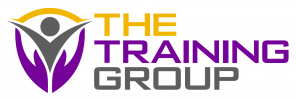Unit 1: Understanding roles, responsibilities and relationships in education and training
Learners will be taught how to analyse the application of pedagogical principles, use assessments, plan lessons and prepare for the classroom environment.
Understanding and using inclusive teaching and learning approaches in education and training
Planning to meet the needs of learners in education and training (Copy 1)
Assessing learners in education and training (Copy 1)
Using resources for education and training (Copy 1)
Unit 2: Teaching, Learning & Assessment In Education & Training (Copy 2) (Copy 1)
Learners will be taught about their responsibilities as educators, educational legislation, meeting the needs of the learners and how to teach in a student-centred manner.
Unit 3: Theories, Principles & Models In Education & Training (Copy 2) (Copy 1)
Learners will be taught ways in which theories, principles and models of learning can be applied to teaching, learning and assessment.
Unit 4: Wider Professional Practice & Development In Education & Training (Copy 2) (Copy 1)
Learners will be taught about the concepts of professionalism and dual professionalism in education and training and how they can apply this within the classroom.
Unit 15: Inclusive Practice (Copy 2) (Copy 1)
Learners will be taught how to review the impact of personal, social and cultural factors on learning and teaching.
Unit 17: Preparing for the mentoring role (Copy 2) (Copy 1)
Learners will be taught how to analyse the skills and qualities required for a the mentoring role teachers play in education.
Unit 25: Developing, using and organising resources in a specialist area (Copy 2) (Copy 1)
Learners will be taught how to analyse how theories, principles and models of inclusive curriculum design can be used to inform resource development in own specialist area.
No questions yet
Be the first to ask your question! You’ll be able to add details in the next step.
Ask a new question
Add an answer
Assessment in Education
Assessment is an essential part of the learning process that involves gathering information about a student’s knowledge, skills, and understanding of a particular subject or concept. Student teachers must have a comprehensive understanding of assessment methods, principles, and best practices to help students achieve success. This article provides a detailed guide on assessment in learning, with links to external resources for further reading.
Types of Assessment
Assessment can be divided into four types: formative assessment, summative assessment, diagnostic assessment, and evaluative assessment. Formative assessment is ongoing and provides feedback to students, helping them to identify areas for improvement and guiding future learning. Summative assessment is a final evaluation of a student’s overall understanding of a subject or concept. Diagnostic assessment identifies areas of strength and weakness and provides insights into the student’s learning needs. Evaluative assessment measures the effectiveness of a program or intervention. This article by TeachThought provides further information on the different types of assessment: https://www.teachthought.com/pedagogy/what-are-the-different-types-of-assessment/
Assessment Methods
Assessment methods can be either formal or informal. Formal assessment includes tests, essays, and exams, while informal assessment includes observations and conversations. Both types of assessment are important and should be used together to provide a comprehensive understanding of a student’s learning. This video by Edutopia provides further information on formal and informal assessment methods: https://www.edutopia.org/video/assessment-strategies-classroom
Principles of Assessment
Several principles of assessment should be followed to ensure that assessment is fair, valid, reliable, and inclusive. These principles include alignment with learning outcomes, measuring what is intended, consistency, clear criteria for success, and taking individual needs into account. This article by TeachThought outlines the principles of assessment in more detail: https://www.teachthought.com/pedagogy/principles-of-assessment/
Individual Needs
Assessment should take into account the individual needs of the student, including their learning style, language ability, and any additional needs they may have. Teachers should make adjustments to assessment methods and accommodations as needed to ensure that all students can demonstrate their knowledge and understanding. This video by Edutopia provides further information on meeting the needs of diverse learners: https://www.edutopia.org/video/meeting-needs-diverse-learners
Assessment Cycle
The assessment cycle consists of four phases: planning, implementation, evaluation, and reflection. Teachers identify what needs to be assessed and how, carry out the assessment, analyze the results, and reflect on the process to make any necessary changes for future assessments. This article by Edutopia provides further information on the assessment cycle: https://www.edutopia.org/article/assessment-cycle-how-teacher-learners-evaluate-work
Assessment Decisions
Assessment decisions should be based on a clear understanding of the learning outcomes and criteria for success. Teachers should use a range of assessment methods to ensure they have a comprehensive understanding of a student’s learning. This article by TeachThought provides further information on making effective assessment decisions: https://www.teachthought.com/pedagogy/making-assessment-decisions/
Feedback and Record Keeping
Feedback is an essential part of the assessment process. It should be clear, specific, and focused on areas for improvement. Feedback should also be timely and provide guidance. Good record keeping and communication with others are also essential components of the assessment process. This video by Edutopia provides further information on providing effective feedback and keeping accurate records: https://www.edutopia.org/video/tips-providing-effective-feedback
In conclusion, assessment in learning is a critical component of a student’s educational journey and must be taken seriously by the teacher to ensure that their progress can be effectively managed.



